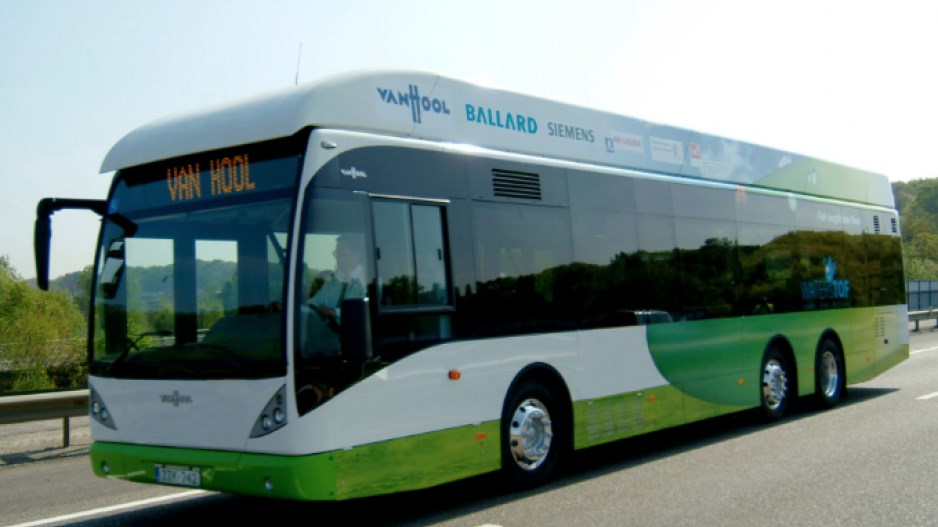British and Japanese companies are working with British Columbia to develop a pilot plant that would use renewable energy to produce hydrogen for both export and domestic use in hydrogen fuel cells.
The B.C. government announced this morning March 29 that it is contributing $230,000 to a study that could lead to a pilot electrolysis plant being built in B.C. by ITM Power in the U.K. BC Hydro is also kicking in $60,000.
ITM Power, which specializes in technologies like power-to-gas energy storage, is looking to harness B.C.’s abundant renewable electricity and hydrogen fuel cell know-how to build a demonstration plant that would use electricity to produce hydrogen from water.
Every water molecule contains two hydrogen atoms, and the process of splitting them into pure hydrogen and oxygen is a relatively simple process – something that can be done in any high school science lab.
The problem, to date, has been that the amount of electricity needed to split the molecules has made it uneconomic, since more energy goes into the process than comes out.
The growth of wind power and the surpluses it generates presents both a challenge and a solution.
Since wind energy is intermittent and often produces power when it’s not needed, it may require large-scale storage. Hydrogen production could be an alternative to large-scale battery storage.
Hydrogen produced from water and wind can be used to power fuel cells – something B.C. has a lot of expertise in, thanks to companies like Ballard Power Systems (TSX:BLDP). The UK has invested heavily in wind power, including offshore wind, so it needs storage solutions.
Starting this spring, ITM Power will work with the provincial government to identify possible sites and transmission requirements, with the aim of building a demonstration plant.
"This technology has the potential to make British Columbia a major player in the worldwide hydrogen economy," Energy, Mines and Petroleum Resources Minister Michelle Mungall said in a press release.
"This project is a clear indicator that, as we move toward a strong, sustainable energy future, B.C.'s renewable and innovative clean energy resources make us an attractive destination for global investment."
The government says there are potential markets for hydrogen produced in B.C. in California, Asia and in B.C. itself.
"Clean tech has the power to modernize our natural resources sector, create good jobs and diversify our economy," added Jobs, Trade and Technology Minister Bruce Ralston. "Renewable hydrogen production has the potential to reduce climate-change impacts through the use of renewable energy and attract new investment to B.C."
Two Japanese companies – Chiyoda Corporation and Mitsui & Co. Ltd. – and B.C.-based G&S Budd Consulting Ltd. will also be involved the project.




